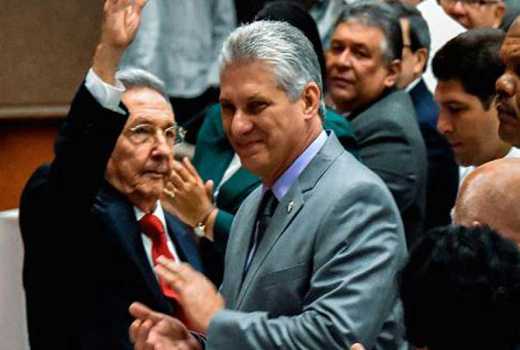×
The Standard e-Paper
Join Thousands Daily

Cuba's new president Miguel Diaz-Canel on Thursday became the country's first leader in nearly 60 years who is not named Castro, pledging continuity for the Caribbean island during the historic transition of power.
The silver-haired Diaz-Canel -- a top Communist Party figure who has served as first vice president since 2013 -- assumed power from Raul Castro, who himself took over from his elder brother Fidel, father of the 1959 revolution.